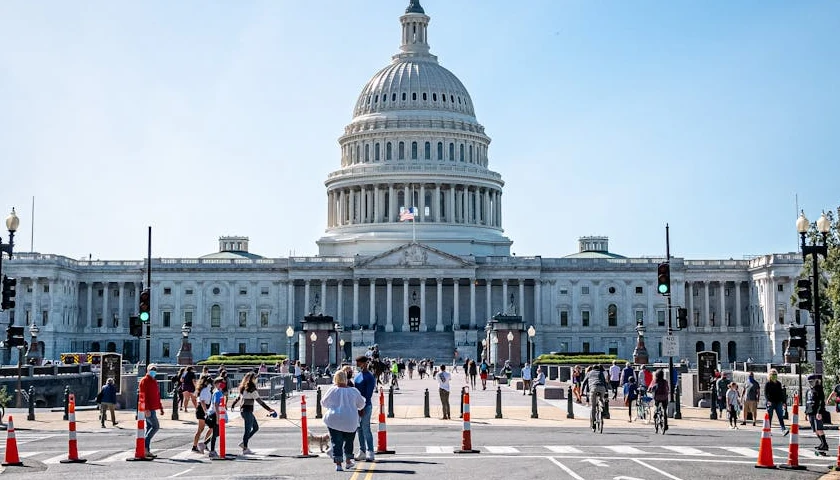by Wallace White
A rule requiring the Government Accountability Office (GAO) to publish annual reports on wasteful spending has saved billions of taxpayer dollars since 2011, according to an Open the Books report released Wednesday.
Former Republican Oklahoma Sen. Tom Coburn amended the Pay-As-You-Go Act of 2010 to require the GAO to include an investigation into duplicate spending between government entities in its annual report, which has saved the government $667.5 billion since its first report in 2011, according to Open the Books. Congress, however, had made efforts to stifle the GAO’s mission, threatening to cut its funding right after its first report, and has been the slowest to adopt the GAO’s waste-cutting recommendations.
 “The federal government spends so much money, that literally no one can tell taxpayers the number of distinct programs that exist across the executive branch,” Open the Books CEO Adam Andrzejewski told the Daily Caller News Foundation. “It’s thanks to the persistence of the late Sen. Tom Coburn that Congress is obliged to actually do something to root out duplicative, wasteful spending. If not for the Coburn Rule, Congress would be happy to continue shoveling money out the door, each committee operating as its own fiefdom making spending decisions in a vacuum.”
“The federal government spends so much money, that literally no one can tell taxpayers the number of distinct programs that exist across the executive branch,” Open the Books CEO Adam Andrzejewski told the Daily Caller News Foundation. “It’s thanks to the persistence of the late Sen. Tom Coburn that Congress is obliged to actually do something to root out duplicative, wasteful spending. If not for the Coburn Rule, Congress would be happy to continue shoveling money out the door, each committee operating as its own fiefdom making spending decisions in a vacuum.”
Federal agencies resolved 75 percent of the 2,018 recommendations from the GAO, while Congress has only resolved 46 percent of the office’s 140 recommendations, according to the report. As of today, 549 recommendations remain open and not fully addressed.
“Despite the best efforts of some lawmakers, they’ve been cowed into keeping the Coburn rule and allowing the GAO to continue highlighting waste – a win for taxpayers that has persisted for more than a decade and racked up hundreds of billions in savings,” Andrzejewski told the DCNF.
The Department of Defense has been the most wasteful agency since 2011, with 99 open cost-cutting recommendations and 68 of them left completely unaddressed, according to Open the Books. However, defense spending across the government saved the most from implementing the GAO’s recommendations since 2011, with $197 billion in savings as of March.
The Department of Health and Human Services is the second most wasteful, with 40 unaddressed and 17 partially addressed recommendations from the GAO, according to the report. Health spending had a similar pattern to defense spending, saving the second most from the GAO’s recommendations with $159 billion saved as of March.
The Department of Agriculture has not addressed any of its 12 open recommendations, according to the report. The government has saved $45 billion in implementing the GAO’s recommendations for the agriculture mission area.
Andrzejewski says that agencies generally have been better at implementing the GAO’s advice than Congress.
“Through our data analysis, we proved something taxpayers could easily intuit,” Andrzejewski told the DCNF. “Federal agencies follow GAO’s recommendations and scrap unnecessary spending far more thoroughly than Congress, which continues dragging its heels and only resolves fewer than half of the recommendations”
In 2014, Coburn introduced the Let Me Google That For You Act, which tried to eliminate the outdated National Technical Information Service — a program that lost $1 million a year by charging money for government reports that were freely available online, according to the report. The bill never passed, but the agency was eventually repurposed three years later in 2017.
Most of the recommendations made by the GAO concerned “improvements in public safety and security, making up 37 percent of the total, according to the report. The next largest topic area was “business process and management” which were 23 percent of the GAO’s recommendations.
The GAO was created by the Budgeting and Accounting Act of 1921 as a reaction to mismanagement of finances during the First World War, according to the GAO website. The act also required executive input to set the government budget for the year, with the GAO fashioned as an independent part of the executive branch to oversee the spending.
– – –
Wallace White is a reporter at Daily Caller News Foundation.
Photo “United States Capitol” by Joshua Santos.





